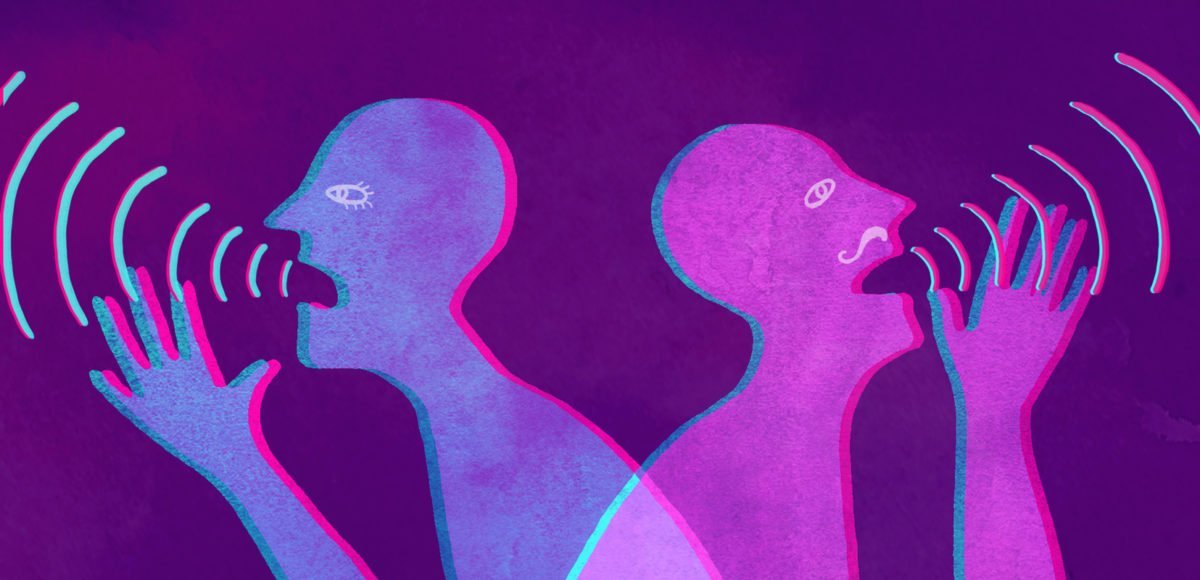In the age of technological omnipresence, AI voice assistants have seamlessly nestled into the fabric of our daily lives, presenting a convenient blend of utility and companionship. AI voice assistants have become indispensable in our daily lives. Yet, beneath their mechanical exterior lies a profound tale of societal reflections and gendered narratives. A striking trend emerges as we explore the digital soundscape—AI voice assistants, the likes of Siri, Alexa, and Cortana, predominantly don a feminine persona.
A striking trend emerges as we explore the digital soundscape—AI voice assistants, the likes of Siri, Alexa, and Cortana, predominantly don a feminine persona.
The decision to assign female voices, names, and even personalities is not a mere design choice; it reflects cultural and societal influences that silently shape our perceptions of gender and technology. This social commentary aims to unravel the feminist discourse surrounding AI voice assistants, examining the implications of their personification, reinforcing stereotypes, and the broader societal impact.
Naming and personification of AI voice assistants
One prevalent aspect of AI voice assistants is the assignment of feminine names and personas. Siri, Alexa, and Cortana are just a few examples, all embodying a female identity. This common practice raises questions about the cultural and societal influences shaping these decisions. The prevalent practice of assigning feminine names and personas to AI voice assistants is rooted in market research and user preferences. Studies indicate a user bias towards responding more positively to female voices, influenced by cultural norms associating femininity with nurturing qualities. However, this raises questions about whether these choices reflect unconscious biases or an intentional effort to align with societal expectations.
Research indicates that users tend to prefer and respond more positively to female voices, possibly influenced by cultural norms associating femininity with helpfulness and nurturing qualities. While the use of female voices might cater to user preferences, it also raises concerns about the perpetuation of traditional gender roles and expectations. The gendering of AI voice assistants potentially contributes to the reinforcement of traditional gender roles. By personifying these entities as female, there’s a risk of subtly conveying that women are primarily suited for supportive and servile roles.
This prompts a critical examination of the unintended consequences of design choices and their potential impact on shaping societal attitudes towards gender roles, challenging the assumed neutrality of technology. By personifying AI voice assistants as female, there is a risk of reinforcing societal stereotypes, subtly suggesting that women are primarily responsible for servile and supportive roles. This raises critical questions about the unintended consequences of such design choices and their potential impact on shaping societal attitudes towards gender roles.
Behind the scenes of design
The decision-making processes of tech companies play a pivotal role in the gendering of virtual companions. Factors such as market research, user preferences, and cultural biases heavily influence these choices. It is crucial to critically analyse whether these decisions are driven by an unconscious bias or a deliberate attempt to conform to societal expectations. Understanding the motivations behind these choices is essential for addressing and rectifying potential gender imbalances in designing AI technologies.
Anecdotes from users interacting with gendered AI voice assistants provide valuable insights into the impact of such design choices.
Anecdotes from users interacting with gendered AI voice assistants provide valuable insights into the impact of such design choices. While many users report positive experiences, feeling a sense of familiarity and comfort with a female voice, others express concerns about the reinforcement of gender stereotypes. Acknowledging the diversity of user experiences and perspectives is essential, as these voices contribute to a more nuanced understanding of the implications of gendered AI companions.
Feminist critiques
Feminist perspectives, particularly within the realm of Cyberfeminism, offer a critical lens to analyse the gendered discourse surrounding AI voice assistants. Critics argue that the gendering of technology reflects and perpetuates existing power dynamics and inequalities. By adopting a feminist critique, we can explore how these design choices contribute to the larger narrative of gender bias in technology and the need for more inclusive and diverse representations.
Judith Butler’s concept of gender performativity also makes its inroads here. In her groundbreaking work, ‘Gender Trouble’. Butler challenges the conventional understanding of gender as a stable category rooted in biological differences. Instead, she argues that gender is a repeated and stylised performance, a set of acts that individuals engage in, consciously or unconsciously, to express their identity within a cultural framework. Butler’s theory invites us to question not only the gender assigned to these virtual entities but also the act of gendering itself.
The naming, voice modulation, and personality traits assigned to AI voice assistants are performative acts that reflect and perpetuate societal norms and expectations regarding gender. This lens allows for a critical examination of how these technological artefacts contribute to the performative nature of gender in our digital interactions.
Societal implications of gendered AI voice technology
The broader societal impact of gendered technology cannot be underestimated. The normalisation of female voices as obedient and subservient entities may influence perceptions of gender in the real world. As technology becomes increasingly ingrained in our lives, the potential for shaping and reinforcing societal attitudes towards gender roles becomes more significant. It is imperative to consider the long-term consequences of these design choices on the evolution of societal norms. Instances of resistance, critiques, and calls for inclusivity are emerging.
Some companies are exploring options for users to choose the gender of their virtual companions, acknowledging the need for customisation and user agency.
Some companies are exploring options for users to choose the gender of their virtual companions, acknowledging the need for customisation and user agency. This shift reflects a growing awareness of the necessity to challenge existing norms and promote inclusivity in technology design. As active participants, users also play a crucial role in influencing the future of AI voice assistants by demanding more ethical and equitable practices.
Privacy and consent
Beyond the surface-level impact, ethical concerns regarding user data, privacy, and the potential reinforcement of gender biases must be addressed. The collection and analysis of user interactions with AI voice assistants raise questions about consent and the responsible use of personal data. Tech companies must prioritise transparency and user agency in their design and data practices to ensure ethical and equitable interactions with AI technologies.
Amidst the ongoing discourse, there are instances of resistance, critiques, and calls for more inclusive and diverse technological representations. Some companies are actively exploring options to allow users to choose the gender of their virtual companions. This shift reflects a growing awareness of the need to challenge existing norms and promote inclusivity in technology design. Users also play a crucial role in influencing the future of AI voice assistants by demanding more ethical and equitable practices from tech companies.
The gendered voices of AI voice assistants are not merely a technological feature but a reflection of societal norms and biases. This social commentary has explored the multifaceted feminist discourse surrounding virtual companions, from their personification and reinforcement of stereotypes to the societal impact and ethical considerations. As we navigate the intersection of technology, gender, and societal norms, it is imperative to foster a broader conversation that promotes inclusivity, challenges existing norms and actively shapes the future of AI in a more equitable and responsible manner.









